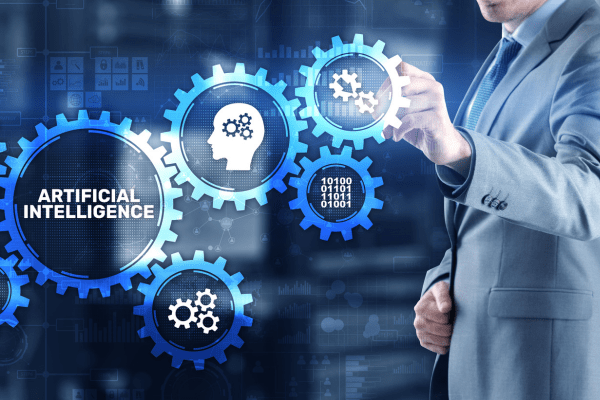As we progress into the future, the world of Artificial Intelligence (AI) is at the forefront of technological advancements and societal transformations. AI has become an indispensable part of our lives, impacting various industries and reshaping the way we live, work, and learn. This blog will delve into the trending topic of AI and its soaring demands, exploring the reasons behind its growth, its applications in different domains, the in-demand skills for AI professionals, and the challenges and opportunities it presents in the education sector.
Understanding AI’s Significance
Artificial Intelligence refers to the simulation of human intelligence in machines that are programmed to learn, reason, and solve problems autonomously. The technology has come a long way since its inception, and today, it has reached a level of sophistication that enables it to perform tasks that were once considered beyond the realm of machines.
AI in Various Industries
- Healthcare
The healthcare industry is one of the primary beneficiaries of AI’s advancements. AI-powered tools are now assisting medical professionals in diagnosing diseases, analyzing medical images, and predicting patient outcomes. Moreover, AI-driven chatbots and virtual health assistants have improved patient engagement and support, offering personalized healthcare experiences.
- Finance
In the financial sector, AI has proven to be a game-changer. It has optimized fraud detection systems, enhanced risk assessment, and revolutionized customer service through AI-driven chat support. AI algorithms analyze vast amounts of data to identify patterns and trends, enabling financial institutions to make data-driven decisions and deliver tailored financial solutions.
- Manufacturing
AI has completely transformed the manufacturing landscape. Smart factories equipped with AI-powered robots and automation systems have streamlined production processes, improved product quality, and reduced operational costs. Predictive maintenance powered by AI has also minimized machine downtime, leading to increased productivity and efficiency.
- Marketing and Advertising
AI-driven marketing tools have revolutionized the way businesses reach their target audiences. Through data analysis and machine learning, AI can personalize marketing campaigns, predict customer behavior, and optimize content for better engagement. Programmatic advertising, enabled by AI, ensures that ads are shown to the right audience at the right time, maximizing ROI.
AI’s Role in Meeting Future Demands
The continuous advancement of AI technology makes it indispensable for businesses aiming to thrive in the future. Here’s how AI is uniquely positioned to meet the demands of tomorrow:
- Enhanced Decision-Making
AI excels at processing vast amounts of data, providing valuable insights that empower businesses to make well-informed decisions. As the volume of data grows exponentially, AI’s ability to analyze and interpret this information becomes even more critical.
- Personalization at Scale
In an increasingly customer-centric world, personalization is key to success. AI algorithms analyze customer preferences and behavior to deliver highly tailored experiences, fostering customer loyalty and satisfaction.
- Streamlined Operations
Efficiency is a cornerstone of success, and AI enables businesses to optimize their operations through automation and predictive analytics. This streamlining translates to cost savings, improved productivity, and a competitive edge in the market.
- Innovation and Creativity
Contrary to the misconception that AI stifles human creativity, it can actually enhance it. By handling repetitive tasks and providing insights, AI frees up human talent to focus on higher-level strategic thinking and innovation.
Implementing AI in Business
To harness the true potential of AI, businesses must adopt a strategic approach to its implementation:
- Identify Pain Points
Identify areas in your business where AI can add value, such as customer service, data analysis, or process automation.
- Data Quality and Security
Ensure that your data is of high quality and well-organized. Additionally, prioritize data security to protect sensitive information from potential threats.
- Training and Expertise
Invest in training your workforce to leverage AI effectively. Having a team of skilled AI professionals will maximize the technology’s potential impact.
- Scalability and Flexibility
Select AI solutions that are scalable and adaptable to your business’s evolving needs. This future-proofing approach ensures continued success as demands change.
Ultimately, AI’s role in meeting future demands is undisputed, and its impact is undeniable. From transforming industries to empowering businesses, AI has ushered in a new era of innovation and efficiency. Embracing AI and integrating it strategically into your business operations will not only set you apart from competitors but also propel you towards a successful and sustainable future.

